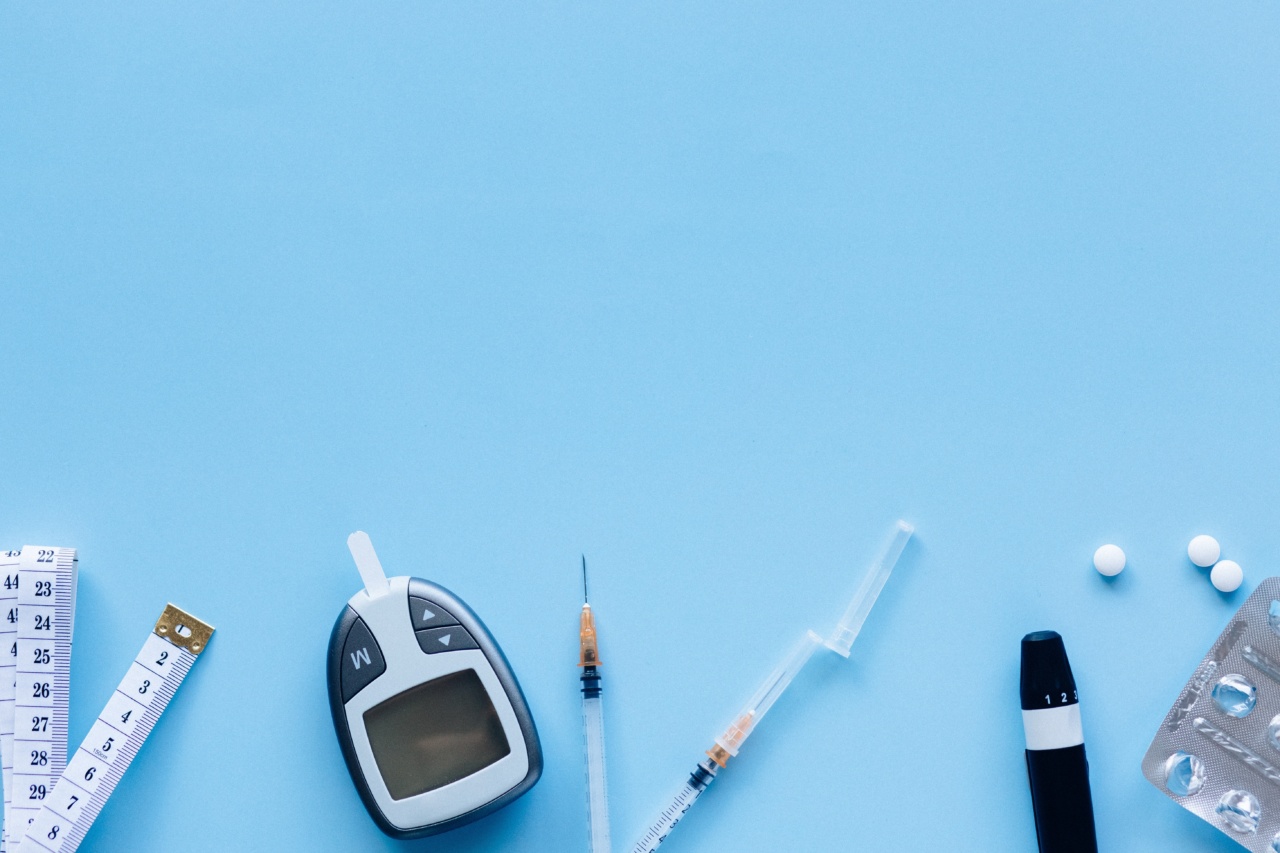Diabetes is a chronic condition that affects millions of people around the world. In recent years, insulin resistance has been identified as a major contributor to the development of diabetes.
Understanding what insulin resistance is and how it works is critical in managing the disease.
What is Insulin Resistance?
Insulin resistance is a condition where the body’s cells become resistant to the effects of insulin. Insulin is a hormone that is produced by the pancreas and is responsible for regulating glucose levels in the blood.
When insulin resistance occurs, the cells are no longer able to effectively utilize insulin, and glucose levels in the blood become elevated.
Causes of Insulin Resistance
Insulin resistance can be caused by a variety of factors. Some of the most common causes include:.
- Obesity
- Inactivity
- Unhealthy diet
- Genetic factors
- Aging
- Medical conditions such as Polycystic Ovary Syndrome (PCOS)
Effects of Insulin Resistance
Insulin resistance can have a wide range of effects on the body. Some of the most common effects include:.
- Elevated blood glucose levels
- Increased risk of heart disease
- Increased risk of stroke
- Increased risk of kidney disease
- Decreased energy levels
- Increased fatigue
- Difficulty losing weight
Diagnosing Insulin Resistance
Insulin resistance is typically diagnosed through a blood test. The most common test is called a fasting glucose test. This test measures glucose levels in the blood after an overnight fast.
If glucose levels are elevated, further testing may be done to determine if insulin resistance is present.
Treating Insulin Resistance
The most effective way to treat insulin resistance is through lifestyle changes. These often include:.
- Weight loss
- Increased physical activity
- Healthy diet
- Quitting smoking
- Managing stress
In some cases, medication may be prescribed to help manage insulin resistance. These may include medications such as metformin or insulin therapy.
Preventing Insulin Resistance
Preventing insulin resistance is key in avoiding the development of diabetes. The most effective prevention methods include:.
- Maintaining a healthy weight
- Exercising regularly
- Eating a healthy diet
- Avoiding smoking
- Reducing stress
The Link Between Insulin Resistance and Diabetes
Insulin resistance and diabetes are closely linked. In fact, insulin resistance is often the first step in the development of type 2 diabetes.
Over time, elevated glucose levels in the blood can lead to damage to the pancreas, which can result in decreased insulin production. This can eventually lead to the development of diabetes.
Conclusion
Insulin resistance is a major contributor to the development of diabetes. Understanding what insulin resistance is and how it works is critical in managing the disease.
By making lifestyle changes and taking steps to prevent insulin resistance, individuals can reduce their risk of developing diabetes and other related conditions.
























